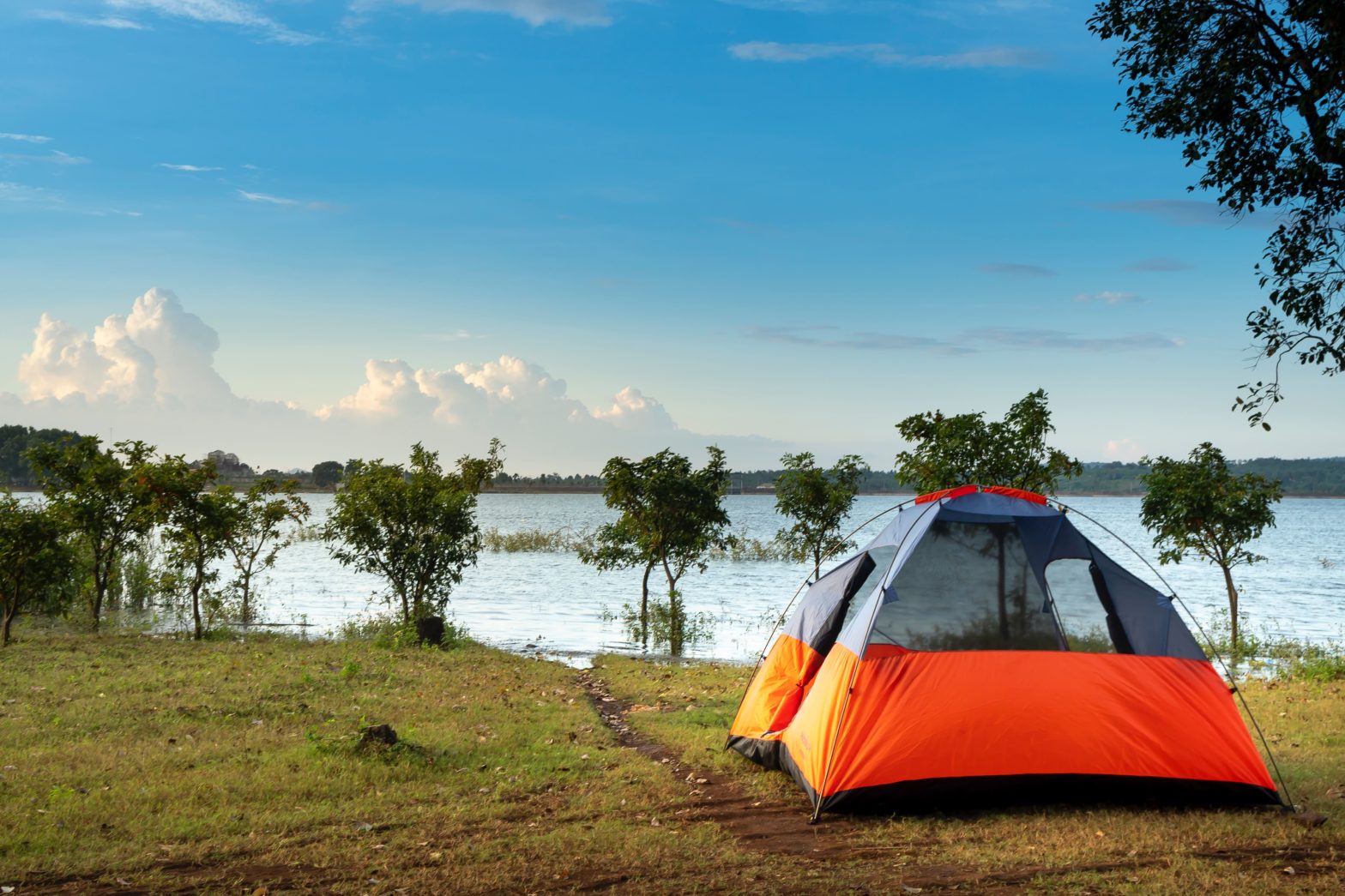One of the best investments you could ever make is purchasing a property. The most common types of property acquisition are houses and commercial developments. However, have you thought of investing in recreational land?
Recreational land is a form of property utilized for leisure activities. Playgrounds, nature paths, parks, hunting fields, and more are a few examples of recreational property. Purchasing recreational land could be the best option if you don’t want to manage a big project like a construction one.
If you enjoy being outdoors, buying recreational land could be the ideal investment for your lifestyle. However, there are a number of things to take into account while looking for the ideal piece of property for outdoor enjoyment. Here’s what you need to know about buying recreational land, its benefits, factors to consider, and the steps involved when investing in this kind of asset.
Steps to Buying Recreational Land
1. Viewing properties
The chances of finding your ideal investment property at just the right price will increase if there are more listings to select from. Use the internet, realtors, word-of-mouth, publications, and “For Sale” signs when searching for recreational land.
2. Collate information
As the properties come in, arrange them in order of priority. Create a numbered ranking system by size, price, and area for the best properties. Have a journal or notepad, and fill it out with the essentials.
3. Organizing information
Organize the remaining properties into folders after deciding which ones you are interested in. Label each folder with the name of the person who supplied you with the information. Identify any information that is lacking, then call your contact.
4. Title search
It is advisable to conduct a title search if you are engaging with a private individual. Ensure that you have a complete and accurate legal description of each property. You may then arrange a title search by getting in touch with a title search firm, or have your lawyer or notary perform it on your behalf.
5. Maps and aerial photos
Here are some necessary details to help you gain a sense of the neighborhood:
- Pre-emption map: The overall picture is provided, including information on public and private lands, highways, railways, rivers, power lines, significant streams, towns, mountains, and more. You might use this map alone to locate a property if required.
- Contour map: This map indicates any access trails and any areas of the property that are very swampy, steep, or hilly. All these are federal maps that the federal government is selling.
- Forestry recreational map: This is the most recent map of the road networks, lakes, and prime camping areas on lakes and forest roads. You can find this at the local forestry offices.
- Agricultural land reserve map: To find out if the property is entirely or partially included in the agricultural land reserve, get a copy of this map. Whatever you do on the land will be significantly impacted by this.
- Vegetation map: This map, which was formerly called a Forest Cover Map, displays the forest height classes, age and species, codes for the crown closures, and the site’s index. It will also display various kinds of terrain.
6. Comparing properties
Once you have all of the aforementioned details, you must ascertain the property’s pricing. As a general rule, use the most recent prices paid for comparable properties.
7. Closing
Determine if this is the property you desire and whether you think the price is fair after touring the property. Next, finalize the agreement or have a new negotiation.
8. Conveyancing
Keep track of the conveyance. Make sure to call the notary public or lawyer to confirm that the sale is going as expected.
9. Financing
As long as the cost is less than market value, no deal is impossible to finance. Mortgage brokers, financial institutions, vendor take-back, cash, sawmills (if your property has a stack of timber), syndications or partners, flipping the property, limited partnerships, or a mix of all of the above are examples of financing methods.
10. Possession
Once you’ve purchased the recreational land, leave your distinct mark on it. To prevent misuse, create a perimeter around it using a fence.
11. Improving the property
There are many things you can do to raise a property’s value. You can clear the vegetation, build roads, engage in selective logging, repair the access roads, create ponds, or construct cabins.
Factors to Consider When Buying Recreational Land

1. Consider your needs
How you want to use the land should be your main consideration while you do your search. This will let you choose a piece of land that meets all of your requirements. For instance, the hunting area has to be big enough and in the right habitat for the kind of animal you want to hunt.
Bodies of water will be needed for fishing land, and if game fish aren’t already there, they might need to be stocked. This is another expense you should factor into your investment. Camping and hiking areas will emphasize accessibility and beautiful scenery. Other qualities start to take on far greater significance if you would like your land to be an investment.
2. Location
You will still have neighbors, no matter how far and remote your land is. Find out how those potential neighbors utilize and maintain their land. You might be able to support their conservation initiatives on your land if they are ongoing. How they utilize their land may have an effect on your ability to use your land as you intend.
Additionally, certain uses of recreational land rely on the season or the climate. Make sure the property you choose has a climate that is appropriate for the usage you have in mind.
3. Access
You should evaluate the accessibility of the property and the travel time needed to get there while evaluating its location. The time commitment to utilizing your land will be significantly larger if you have to go a long way from your house, which will reduce the value of your investment overall if you can’t use it frequently.
4. Finances
The type and size of land you can purchase will be heavily influenced by your budget.
You should evaluate your financial situation to ascertain what you can afford, then let that figure guide the remainder of your decision-making. If you’re hesitant, think about seeking advice from lenders and financial professionals. A lender will assist you in determining the size of the loan you can afford, and a financial advisor may provide guidance based on the particular circumstances and objectives you have.
5. Think about your long-term goals
Your land decisions may be considerably influenced by your long-term intentions. Your long-term goals for the property may be far more difficult to assess and articulate than your short-term position, which may be rather easy to break down.
You must make sure the site is appropriate for building if you intend to one day build a house on the property. The availability of utilities and truck accessibility are important factors in construction. If the terrain is suitable, a well and septic tank may be used in place of water and sewer instead. If the property has poor drainage or encompasses protected land masses like marshlands, it may simply not be feasible to construct on it.
6. How will you purchase the land?
Traditional real estate brokers most likely lack the expertise needed to enable the purchase of recreational land. Land brokers with specialized knowledge will have greater experience and can utilize that knowledge to help you acquire land. By doing some research, you can find trustworthy local land brokers that can help you with your land acquisition.
The Benefits of Buying Recreational Land
1. It’s therapeutic: Most people want to have recreational land for outdoor pursuits like hunting, hiking, fishing, camping, and other outdoor activities. Purchasing a recreational property will enable you to spend time in nature, which improves your health and happiness.
2. Leasing option: You could make money from your land. For instance, if you use your land as a campsite, allowing other campers or families to use it at a discounted rate can be profitable.
3. Cost-effective long-term investment: Since property insurance is affordable, and you don’t have a mortgage or other monthly obligations, buying unoccupied land to use as recreational space can be an affordable long-term investment.
Endnote
There are other leisure activities that can be planned, including weekend trips, family retreats, fishing, and hunting. Recreational land provides a number of economic and monetary advantages.
Some individuals purchase undeveloped property because of its potential for use in agriculture. However, there are numerous advantages to recreational land that shouldn’t be disregarded. Despite the fact that individuals don’t invest in recreational land for the sole purpose of making money, there are several benefits to doing so, including the potential for revenue and entertainment.
If you need any help with selling your recreational land, we’ll help you sell your property quickly without listing fees, and you’ll get a free, no-obligation cash offer. Why not give us a call today?
Featured Image by Pexels

